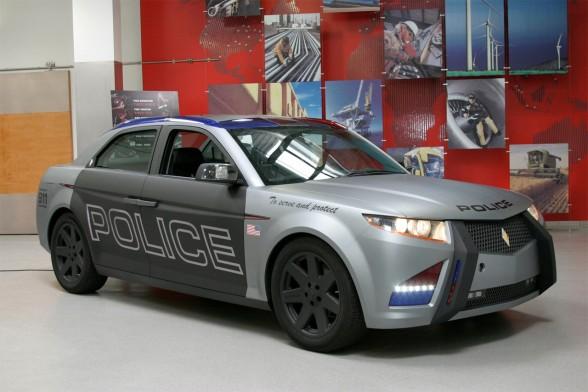 Carbon Motors was denied a $310 million loan from the Department of Energy. The company had applied for the loan under the DOE’s Advanced Technology Vehicle Manufacturing (ATVM) program to build a fuel-efficient, purpose-built police car, the E7.
Carbon Motors was denied a $310 million loan from the Department of Energy. The company had applied for the loan under the DOE’s Advanced Technology Vehicle Manufacturing (ATVM) program to build a fuel-efficient, purpose-built police car, the E7.
“We are outraged by the actions of the DOE and it is clear that this was a political decision in a highly-charged, election year environment,” said Santana Li, Carbon chairman and CEO. He said the DOE has not given out any loans since the failure of Solyndra, and claimed the E7 would have helped achieve President Obama’s pledge to improve federal fleet efficiency by 30 percent.
The ATVM loan would have been used to complete development (including crash-testing) of the E7 and pay for manufacturing costs. The company says it has already raised $200 million from private sources, and has 20,176 reservations for E7s.
The city of Connersville, Indiana hoped to become the “police car capital of the world” by having Carbon set up shop. The company planned to use a recently-vacated factory and said it would bring 1,500 jobs to this economically-depressed city.
In a statement, DOE spokesman Damien LaVera said the decision was not political. “Over the last two and half years, the Department has worked with Carbon Motors to try to negotiate a deal that supported their business while protecting the taxpayers,” LaVera said. “While we were not able to come to an agreement on terms that would protect the taxpayers, we continue to believe that Carbon Motors is an innovative company with an interesting project and we wish them luck.” Startup car companies are always a risky investment; no government or private investor wants to put their money into another DeLorean.
If the E7 does get built, it will be the first vehicle designed from the ground up as a police car. It will have a diesel engine with 300 hp and 420 lb-ft of torque. Carbon says it will do 0-60 mph in 6.5 seconds, have a top speed of 155 mph, and get 28-30 mpg in regular use. Unlike other police cars, which are converted from civilian models, the E7 is designed to still be safe while carrying police equipment. Computers and radios can become projectiles in a crash, so the E7 has all of its communication equipment integrated into the dashboard. The seats are designed for cops wearing utility belts. Everything from lights to plate-recognition cameras and biohazard sensors are built into the bodywork for better aerodynamics.
Li claims the loss of the DOE loan will not sink his company. “We will continue the fight. We at Carbon Motors choose this path not because it is easy, but because it is hard, because it is just, because it is honorable and because we are Americans,” he said. The next step is unclear; the company has only discussed examining financial alternatives, with no concrete “Plan B.”


